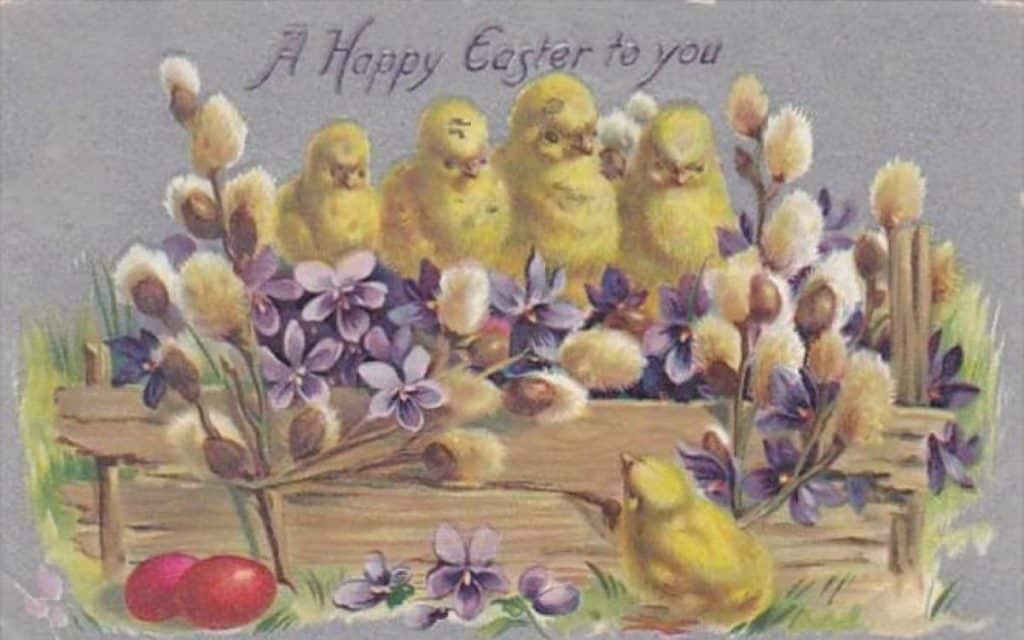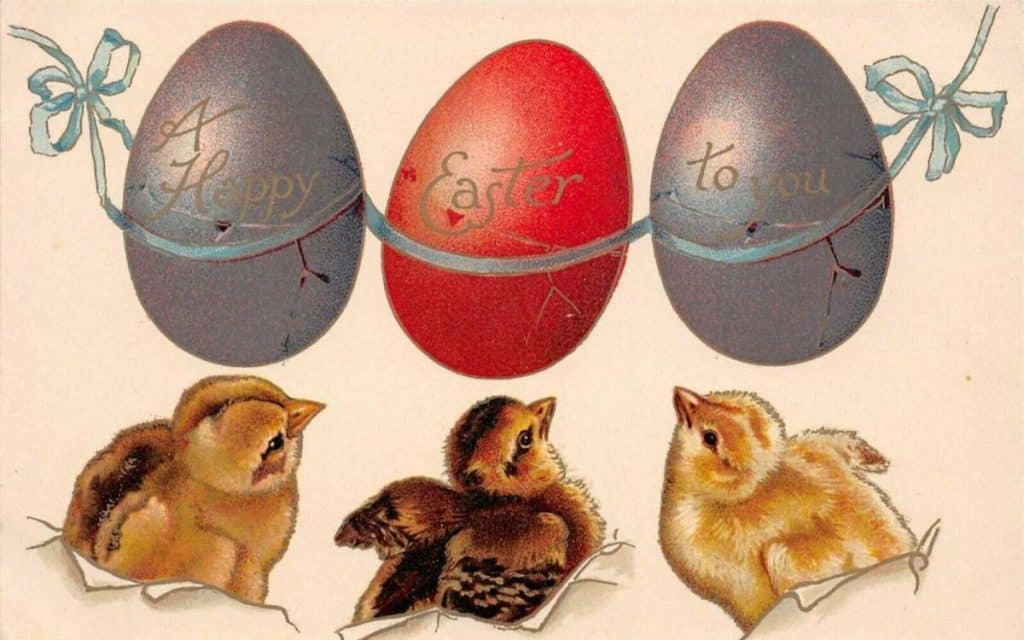CLAIRE BARRAND reveals some strange and wonderful Easter traditions from Britain, much older than your chocolate eggs
Easter itself was originally a pagan tradition, primarily absorbed by Christianity, and is widely celebrated around the world around the time of the Spring vernal equinox. Symbolising light, resurrection, birth, the end of the winter and new growth, the triumph of life over death. Many old religions had a Spring Goddess who breathed life back into the earth after banishing the winter.
The introduction of the Easter bunny came much later and was actually of German origin.
Formerly a hare which laid eggs to give to good children, the Oschter Hare was not a British tradition at all. Yet today in the UK the association of Easter with bunnies and chocolate eggs is widely observed. Here we dig deep into the ancient folklore of Easter time in the UK long before Cadbury existed!

Bury a blood-red egg in the field to protect the crops
Eggs are one of the more obvious Easter symbols, but long before the chocolate egg, they had customs and traditions developing their part in Easter lore.
Being one of the foods forbidden during Lent, the eating of them was celebrated, and they were decorated and kept in British homes as a symbol of luck.
Dyed red in memory of the blood spilt by Christ they would be given to children to preserve their health for the next year. They were also buried in fields to protect crops from bad weather.
Keep evil spirits away
The ringing of church bells announces spring but also wards off darkness and malevolent spirits. Painting eggs, bright colours should attract good energy and also deflect evil. Brightly decorated eggs would be kept as good luck charms all year round. Purple and Yellow were favoured as the colours of wealth and sunshine.
Don’t let a witch get your eggshells!
Shells would always be crushed entirely after consuming the egg because if a witch got hold of it, she could gain power over the person who had eaten it.
Double yolk eggcellent or bad luck?
A double yolk was either bad or good luck, depending on your location. In some areas it was thought to foretell a wedding, others a death.
Don’t do your washing on Good Friday
There are numerous notions as to why but one story from Hereford explained that as the blessed lord was carrying his cross to his crucifixion, a woman threw her dirty washing water over him. Another woman was standing by and offered the lord some of her fresh baked bread in sympathy, to which he said “from henceforth blessed be the baker, and cursed be the washer” It is thought to bring you terrible luck if you do your laundry on Good Friday, and don’t change your bed linen either as you will be plagued with nightmares!

Hot Cross Buns cure diarrhoea and ward off fire
Baked on Good Friday in British homes these cross-bearing loaves of bread would be kept all year for luck, some would be grated and given for intestinal ailments. It was said to never go mouldy as long as it was set to rise before 7 am and baked before 11am. Keeping a hot cross bun for a whole year, even hanging one in the home, was thought to protect the house from fire. If you keep an egg laid on good Friday too then throwing this into any fire would put it out.
Don’t do any sewing on Good Friday
In Shropshire, they thought that any stitching you did would never be undone, but generally, any work started on Good Friday was pointless because you would never complete it and it would need redoing over again.
I “wood” not recommend this….
With apparent connotations with the cross, working with wood on Good Friday, in particular, driving a nail through it or burning it was thought to be unlucky and disrespectful.
Born at Easter…
Babies born on Good Friday were baptised on Easter day, either because they were thought to have potential healing powers like Jesus Christ or in some areas, it was considered unlucky to be born on Easter Day, so the baptism balanced that out.
Easter Traditions: Wear old clothes and risk being pooped on by rooks!
It is thought unlucky to wear old clothes on Easter Sunday. With possible reasons being the symbolism of renewal and rebirth, and maybe the superstition that the new clothes worn to church gave them a lucky blessing. A decorated bonnet or new hat was often favoured, and wearing old clothes risked a bird fouling on you! If a person couldn’t afford new clothes, a new handkerchief waved at the birds as they left the house would suffice.



As a small boy, my nan always said {and did so herself} that if you crack an egg or when you’ve finished eating a boiled egg crush the shells up. This was, apparently, to foil Black Witches who could shrink their bodies until they could fit into unbroken halves of the eggshell. Then they would make them into small boats and float out to sea and bring bad luck to the sailors on real ships. At the time, I had two favourite uncles and a cousin in The Merchant Navy, my neighbour’s son, Barry, was serving in the Royal Navy and in a few years time, I would be sailing for ‘P&O’. Because of this, my shells were always crushed to oblivion! My nan said that just crushing by hand will do the job and that jumping up and down on them was a tad unnecessary and made a mess.
I’m 71 years old and to this day, all my eggshells are crushed as I drop them into the recycle box.